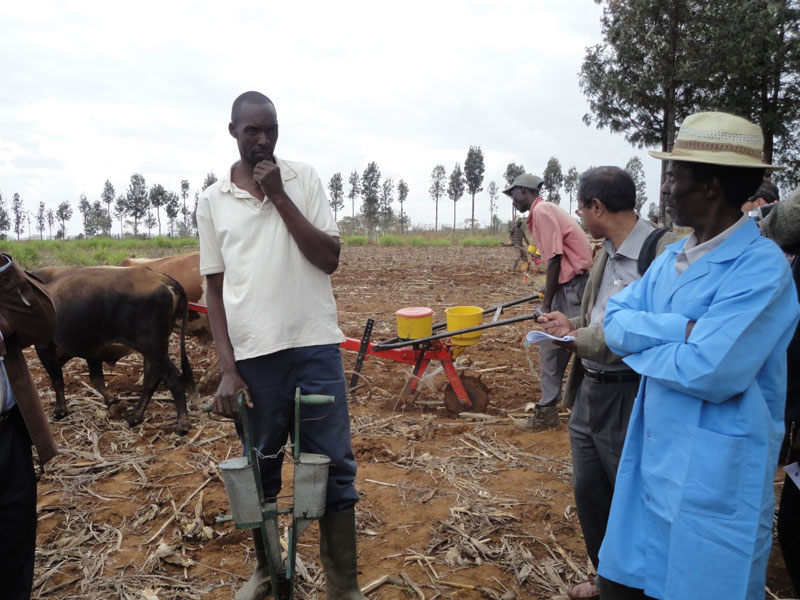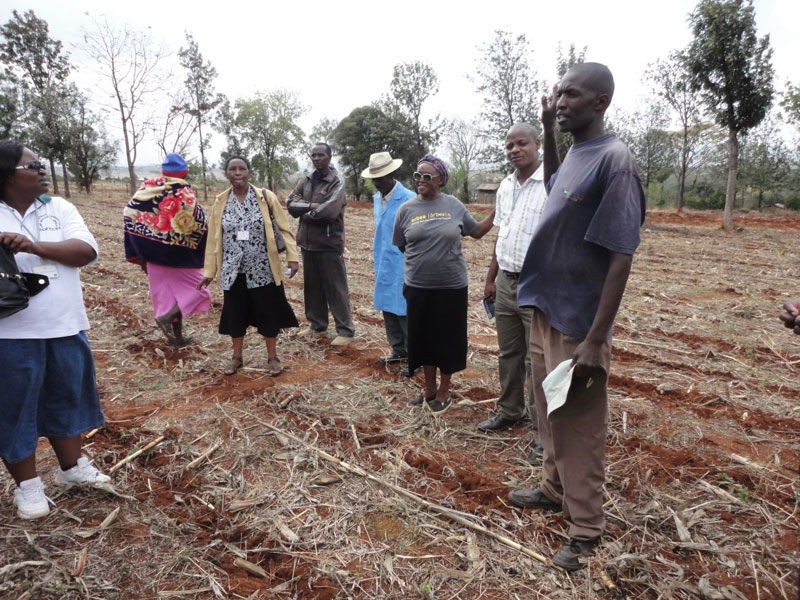Dr Helena Posthumus of NRI attended the 5th World Congress on Conservation Agriculture in Brisbane, Australia (26-29 September 2011). Conservation Agriculture is a farming system approach based on three principles (minimum soil disturbance, permanent soil cover and appropriate crop rotations to reduce pests and diseases) that is seen as a sustainable way of rainfed agriculture in areas with erratic rainfall and degraded soils. Scientists from all over the world came together for four days to discuss the latest findings and advances in conservation agriculture and farming systems design. Helena made a poster and oral presentation on the ABACO project (Agroecology Based Aggradation-Conservation Agriculture: targeting innovations to combat soil degradation and food insecurity in semi-arid Africa).
 Some of the take-home messages of the congress included:
Some of the take-home messages of the congress included:
- Population growth, urbanization and climate change are huge challenges for current and future food security, in particular in developing countries.
- In this context, conservation agriculture works but has to be tailored to farmers' specific situations.
- Dissemination and promotion of conservation agriculture has to be farmer-led as experiences in Latin America & Australia have shown. Extension models that are grassroots driven (e.g. the Landcare movement in Australia, farmer-to-farmer extension, farmer clubs) are therefore recommended.
- However, it also has to be recognized that smallholder farmers in sub-Saharan Africa are facing constraints that limit their innovative capacity, for example lack of input and output markets, lack of infrastructure, and poor extension services. It is thus important to support farmers by providing an enabling context and facilitating innovation processes.
 The EU-funded ABACO project aims to do this in seven countries in semi-arid Africa over the period 2011-2014. The project seeks to increase farmers' innovative capacity by facilitating on-farm experimentation and learning, supported by controlled experiments and modelling to optimise productivity as well as tradeoffs between different agro-ecological functions. These different sources of knowledge and research outputs will be shared and evaluated in innovation platforms, bringing multiple stakeholders together. The ABACO project is led by the African Conservation Tillage Network (ACT); the consortium exists of the following partners: ACT, CIRAD, CIRDES, EMBRAPA, FOFIFA, SOFECSA, NRI, Wageningen University, and Yellow Window.
The EU-funded ABACO project aims to do this in seven countries in semi-arid Africa over the period 2011-2014. The project seeks to increase farmers' innovative capacity by facilitating on-farm experimentation and learning, supported by controlled experiments and modelling to optimise productivity as well as tradeoffs between different agro-ecological functions. These different sources of knowledge and research outputs will be shared and evaluated in innovation platforms, bringing multiple stakeholders together. The ABACO project is led by the African Conservation Tillage Network (ACT); the consortium exists of the following partners: ACT, CIRAD, CIRDES, EMBRAPA, FOFIFA, SOFECSA, NRI, Wageningen University, and Yellow Window.

